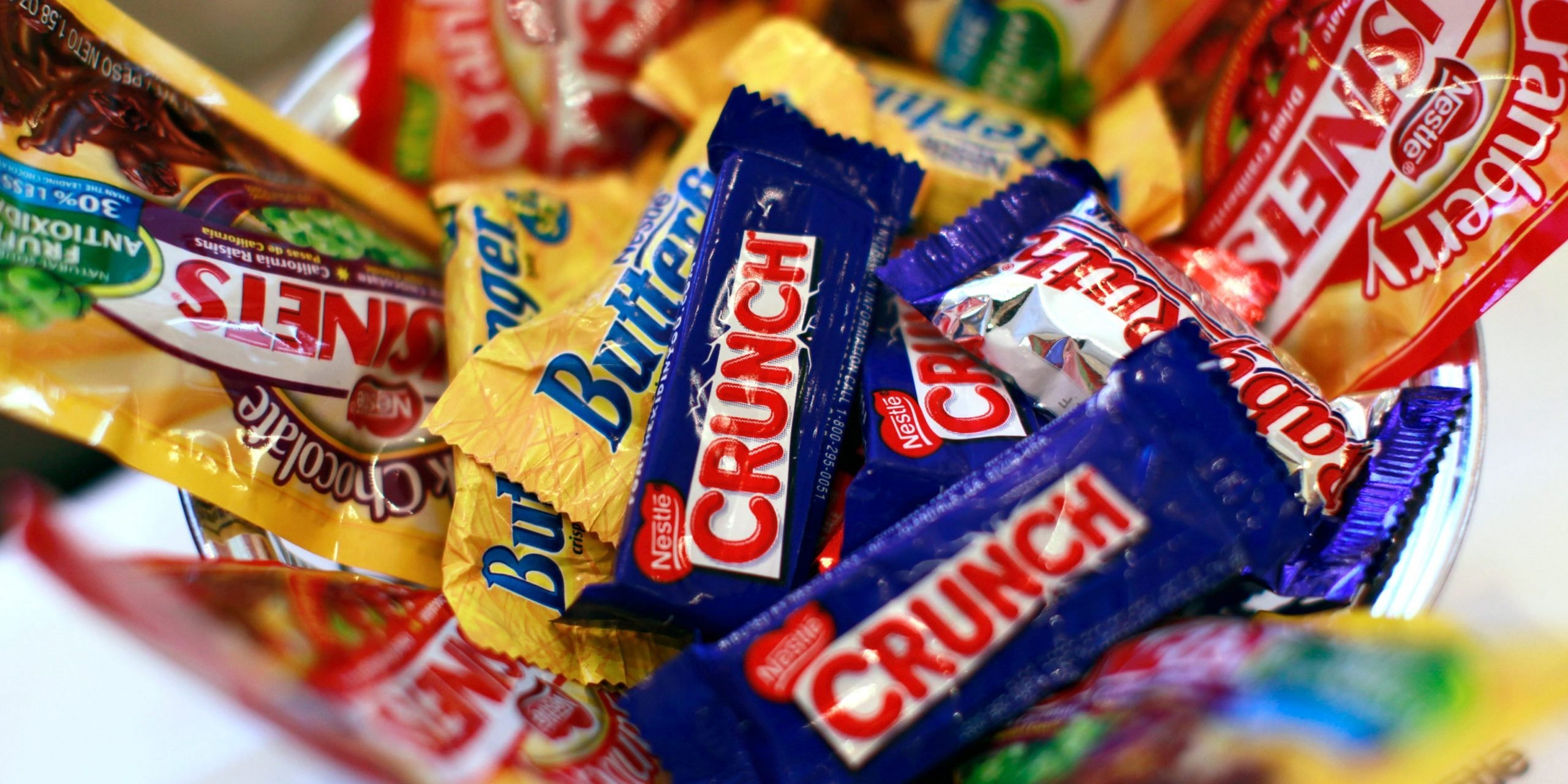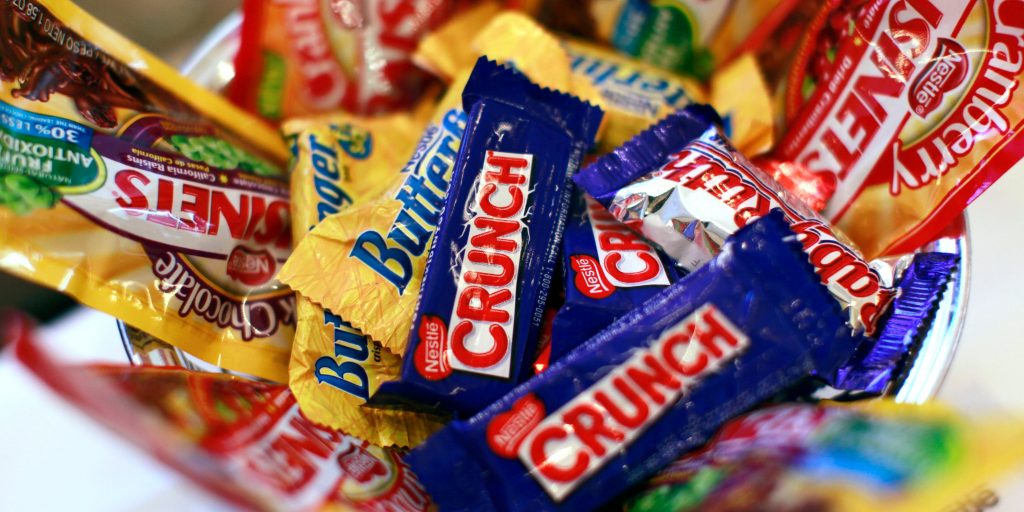
REUTERS/Brendan McDermid
- The majority of Nestlé's food and drinks do not meet a "recognised definition of health."
- Just 37% of its consumer food and beverage products meet international health standards.
- The global food company acknowledged the issue in an internal presentation seen by the Financial Times.
- See more stories on Insider's business page.
More than 60% of Nestlé's consumer food and beverage products do not meet an internationally recognized health standard, according to internal company documents seen by the Financial Times.
"Some of our categories and products will never be 'healthy' no matter how much we renovate," the company said in a presentation seen by top executives at the world's largest food conglomerate.
The definition of "healthy" comes from the Australian health star rating system, which scores products on a five-star scale and is used by international researchers including the Access to Nutrition Foundation. A product must score at least 3.5 stars to be considered healthy.
"We have made significant improvements to our products … [but] our portfolio still underperforms against external definitions of health in a landscape where regulatory pressure and consumer demands are skyrocketing," the presentation said.
The company did not immediately respond to Insider's request for comment on this story.
The presentation highlighted the stats of some of the most unhealthy products made and sold by Nestlé-owned brands.
A serving of Hot Pockets pepperoni pizza packs a whopping 48 percent of the daily sodium allowance, followed closely by DiGiorno's three meat croissant crust pizza, which has 40 percent. To pair saltiness with sweetness, Nestlé also offers an orange-flavored San Pellegrino drink with 7.1g of sugar per 100ml, and Nesquik's strawberry-flavored milk powder with 14g of sugar in a 14g serving.
"Strawberry Nesquik is perfect at breakfast to get kids ready for the day," Nestlé says.
Professor Marion Nestle (no relation), who researches nutritional science at Cornell, told the FT that a healthy portfolio is likely out of reach for large publicly traded companies like Nestlé.
"Food companies' job is to generate money for stockholders, and to generate it as quickly and in as large an amount as possible," she said. "They are going to sell products that reach a mass audience and are bought by as many people as possible, that people want to buy, and that's junk food."
"Nestlé is a very smart company, at least from my meetings with people who are in their science [departments] ... but they have a real problem," she added. "Scientists have been working for years to try to figure out how to reduce the salt and sugar content without changing the flavor profile and guess what, it's hard to do."

